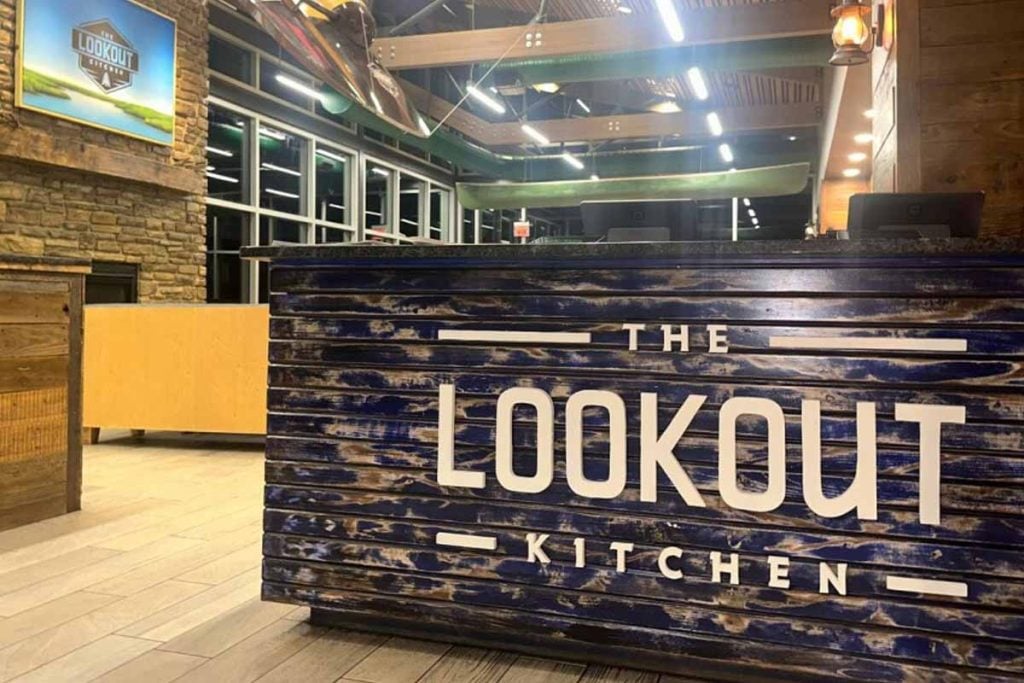Change is on the horizon for a beloved American restaurant chain, stirring quiet concern among loyal visitors. The confirmation of a widespread shutdown has left many wondering what prompted such a sudden end. For years, families gathered there for comfort food and familiar warmth. Now, uncertainty replaces routine, and the story behind this closure remains shrouded in silence. As September 30 approaches, nostalgia and curiosity mix, leaving diners waiting for what might come next.
Closures hit five park eateries after brief relaunch
All locations will close on September 30, ending service months after the reopening reported by The Oklahoman. The five restaurants sit inside state parks and had become routine stops for families, anglers, hikers, and campers. Staff kept menus simple, while diners praised quick service, fair prices, and relaxed, scenic views.
Each site carries a familiar name and a distinct setting: Broken Bow, Ardmore, Wilburton, Watonga, and Lone Wolf. Park visitors say sit-down options shrink with the exits, so daytrip plans may change. Officials stress continuity, since takeaway food will remain until a replacement operator is selected and set up.
That interim plan matters to travelers who time meals around trailheads and lake launches. Guests can still grab food while camping or after a morning paddle. The restaurant chain retreat stings regulars, and it also raises questions about contracts, cash flow, and oversight in public venues that lease kitchens to private vendors.
Debt, contract strain, and the restaurant chain timeline
State officials said the operator failed to meet key contract terms and owed more than $274,000. Negotiators then agreed on six installments to clear the debt, and managers reopened the sites. According to the plan, the company made the first two payments on time, which briefly calmed nerves in the parks.
Tension surged again when a check for $51,647.84 missed its August 15 deadline. KOKH-TV later reported the amount due on September 15 was not paid either. With arrears returning, the balance sheet squeezed daily operations. Leaders weighed options, and after review, they confirmed the impending, simultaneous shutdown of all kitchens.
The Oklahoman charted the short arc: a restart, a payment plan, then a collapse in compliance. The dates mattered, as did trust between state stewards and a private partner. When trust breaks, suppliers wobble and teams lose hours, so closure becomes the last lever left to protect facilities and public expectations.
Impact on park visitors, staff, and local tourism
Sit-down service narrows across the parks, while takeaway keeps campers and daytrippers fed. Families who plan meals around trail times will feel it first. Staff who welcomed regulars now face a transition, and that strain touches small towns where park traffic supports gas stations, cabins, bait shops, and weekend markets.
Reaction split online. “What a shame,” one diner wrote, while another praised workers as “very friendly.” Others asked, “Who do we blame this time?” and sighed, “Here we go again.” Ardmore tourism leader Bill Murphy added context: “Any private operator for food is gonna have a tough time at a state park.”
That hard reality frames this restaurant chain exit. Costs rise, seasonal demand swings, and staffing flexes with weather and school calendars. When margins thin, one late payment triggers the next. Visitors still need meals, yet operators need predictable cash, clear rules, quick repairs, and a contract that shares risk fairly.
How this fits a wider restaurant chain shake-out in 2025
Denny’s plans up to 150 closures by year-end because many sites no longer turn profit. Red Lobster expects to close more than 100 stores as new CEO Damola Adamolekun resets the brand. TGI Friday’s continues to shed units after a bankruptcy filing, including 30 restaurants that shut their doors in April alone.
Applebee’s projects a net loss of 20 to 35 locations in 2025, while it pilots dual-branded sites with IHOP that offer a curated mix of best-sellers. Noodles & Company will close between 17 and 21 stores after a rough 2024. These moves show how costs, shifting habits, and debt shape expansion and retreat.
Maple Street Biscuit Company, owned by Cracker Barrel, will close 14 restaurants over the 2026 financial year, six years after Cracker Barrel bought it for $36 million. Salad and Go plans to shut more than 40 locations, with Texas drive-thrus hit hard. Maggiano’s Tyson, Virginia, closed after 30 years on September 23.
What stays, what ends, and what could replace Lookout
For now, takeaway service remains, so visitors still have a safety net while leaders recruit a successor. Food trucks, interim concessions, or a new vendor could fill gaps. Future contracts may stress clear milestones, faster audits, and escrow safeguards, because late checks can cascade into service cuts and lost weekends.
A replacement can restore full menus that regulars miss, from burgers and sandwiches to wraps and homestyle dinners. The state will weigh fit, price, and reliability, while small towns want speed. To rebuild faith, the next operator in this restaurant chain story must show transparent finances and a durable, local hiring plan.
Travelers should check park notices before setting out, since dining windows may change as kitchens wind down. Carry simple backups, like snacks and coolers, and map alternate stops along the highway. Communities in Broken Bow, Ardmore, Wilburton, Watonga, and Lone Wolf will adapt, yet many hope dining rooms return soon.
Why this moment matters for park diners and workers
A complete shutdown lands fast, yet it follows months of strain the public could sense. The five sites close September 30, while takeaway stays until another vendor steps in. Because this restaurant chain touched everyday trips, the next chapter should balance speed, oversight, and steady cash flow, so cooks can focus on food. Park families want warm rooms and simple menus back, and a successor that fits Oklahoma’s rhythms without repeating the same costly mistakes.
